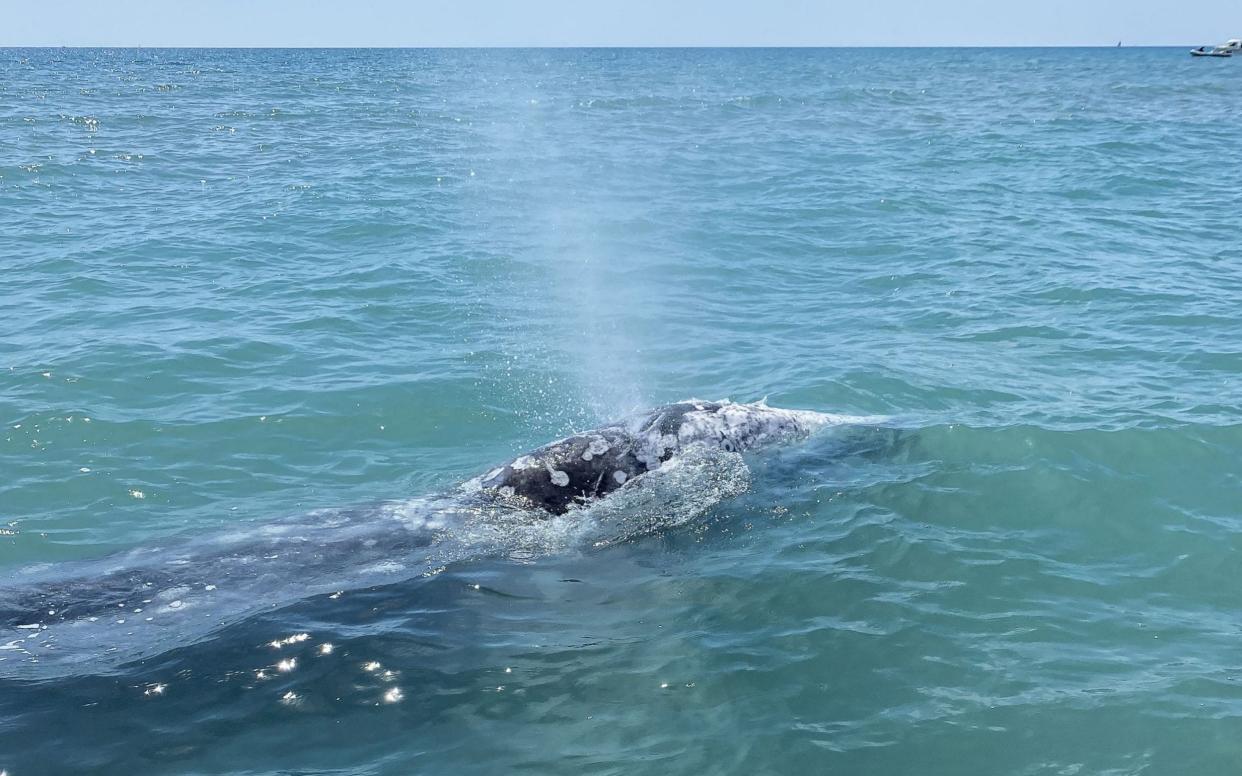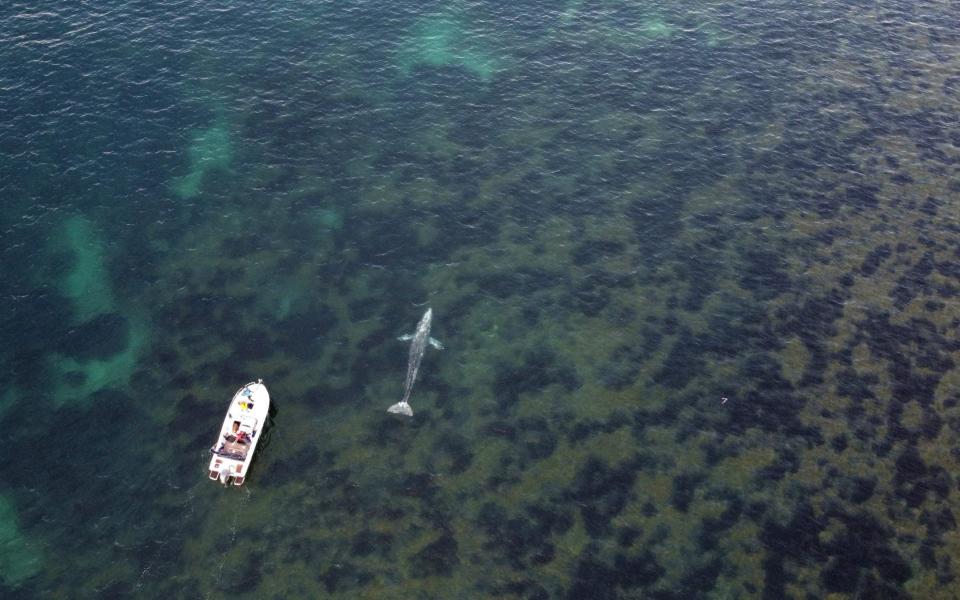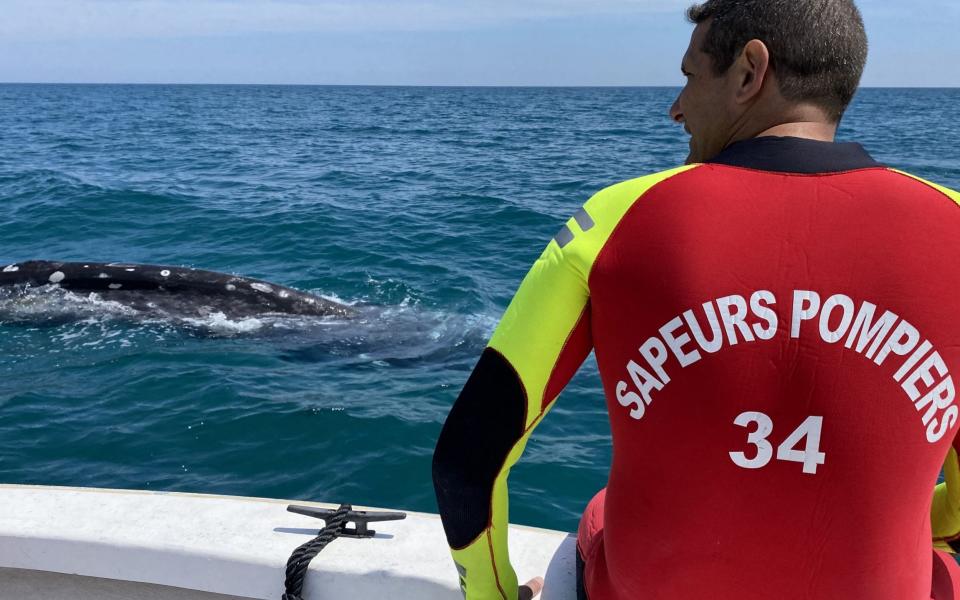Experts baffled by rare grey whale named Wally lost in the Mediterranean

- Oops!Something went wrong.Please try again later.
Scientists are astounded and baffled that a grey whale - a species from the northern Pacific - has turned up in the Mediterranean and are now deeply concerned for its wellbeing so far from home.
The whale, nicknamed Wally in reference to the children's book Where's Wally, has swapped its normal range - places like Baja California and Alaska - for Morocco, then Italy and now France.
It is only the second time biologists have observed a grey whale in the Mediterranean. The last time was in 2010.
With global warming opening northern routes, it is believed the whale became lost and swam into the Atlantic via the Arctic.
"We will probably see this more often because of climate change, which not only opened the northern route but is also changing ocean currents because of the melting of the ice caps," said Eric Hansen, head of the state biodiversity agency in southern France.

Scientists think that there may now be a breeding population in the Atlantic, decades after whalers hunted them to extinction.
Wally was first spotted off Morocco and then in Italy’s Bay of Naples around the islands of Capri, Ischia and Ponza.
The whale is around two years old and eight metres (26.25 ft) long. However, biologists are concerned about his rapid weight loss as he cannot find the invertebrates that are his normal food source in the depths of the Pacific.
"We are very worried about his future, as his fat, which is his fuel to travel, has gone down a lot. He is exhausted and just skin over bones. We have not seen him eat since we started tracking him," Mr Hansen told Reuters.

Wally entered the Mediterranean through the Straits of Gibraltar and followed the Moroccan coast before cutting across to Italian shores and then heading for France.
Traveling 80 to 90 kilometres a day, he was spotted very close to the shore of Antibes and is now approaching the Spanish coast.
"It is trying to enter harbours, as if to find a way out. Its strategy should work and we hope it can make its way back to Gibraltar in about a week," said Mr Hansen.
However, escape may not be so simple. A few days ago, Wally got caught in a fishing net off the Camargue coast but managed to free himself. There are concerns he may get confused by heavy shipping traffic in the Gibraltar Strait.

